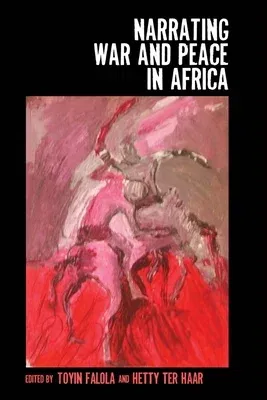A comprehensive volume that offers historical and nuanced
representations of war and peace in Africa from the fields of African
studies and cultural studies, linguistics, journalism and the media,
literature, film, drama and performance, women's and gender studies, and
human rights.
Narrating War and Peace in Africa interrogates conventional
representations of Africa and African culture -- mainly in the twentieth
and early twenty-first centuries -- with an emphasis on portrayals of
conflict and peace.While Africa has experienced political and social
turbulence throughout its history, more recent conflicts seem to
reinforce the myth of barbarism across the continent: in Nigeria,
Rwanda, Somalia, Sierra Leone, Uganda, Kenya, Mozambique, Chad, South
Africa, Zimbabwe, and Sudan. The essays in this volume address reductive
and stereotypical assumptions of postcolonial violence as "tribal" in
nature, and offer instead various perspectives -- across disciplinary
boundaries -- that foster a less fetishized, more contextualized
understanding of African war, peace, and memory. Through their
geographical, historical, and cultural scope and diversity, the chapters
in Narrating War and Peace in Africa aim to challenge negative
stereotypes that abound in relation to Africa in general and to its wars
and conflicts in particular, encouraging a shift to more balanced and
nuanced representations of the continent and its political and social
climates.
Contributors: Ann Albuyeh, Zermarie Deacon, Alicia C. Decker, Aména
Moïnfar, Kayode Omoniyi Ogunfolabi, Sabrina Parent, Susan Rasmussen,
Michael Sharp, Cheryl Sterling, Hetty ter Haar, Melissa Tully, Pamela
Wadende, Metasebia Woldemariam, Jonathan Zilberg.
Toyin Falola is the Jacob and Frances Sanger Mossiker Chair in the
Humanities and University Distinguished Teaching Professor at the
Universityof Texas at Austin.
Hetty ter Haar is an independent researcher in England.

